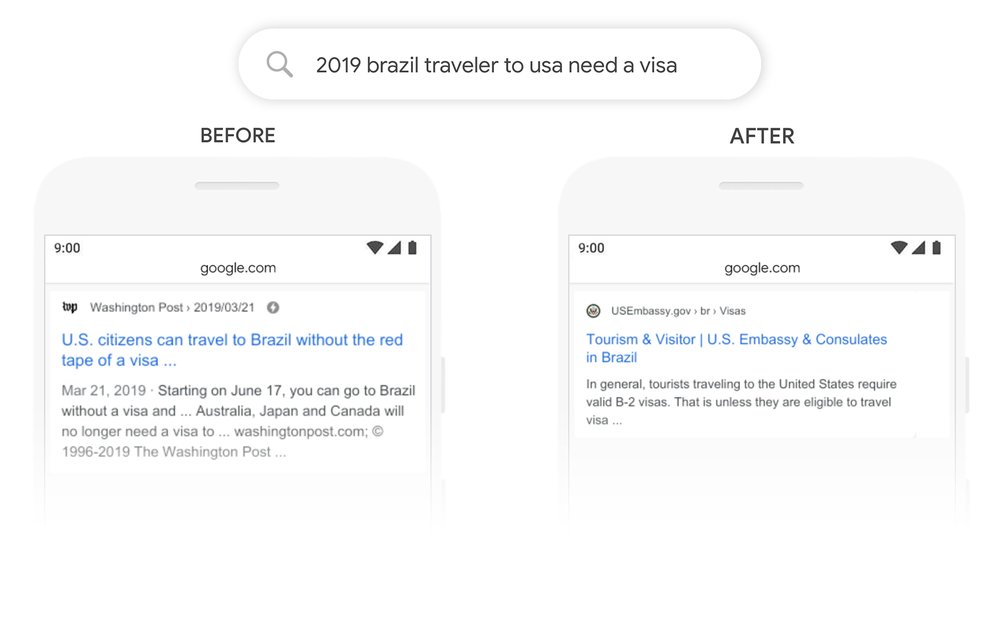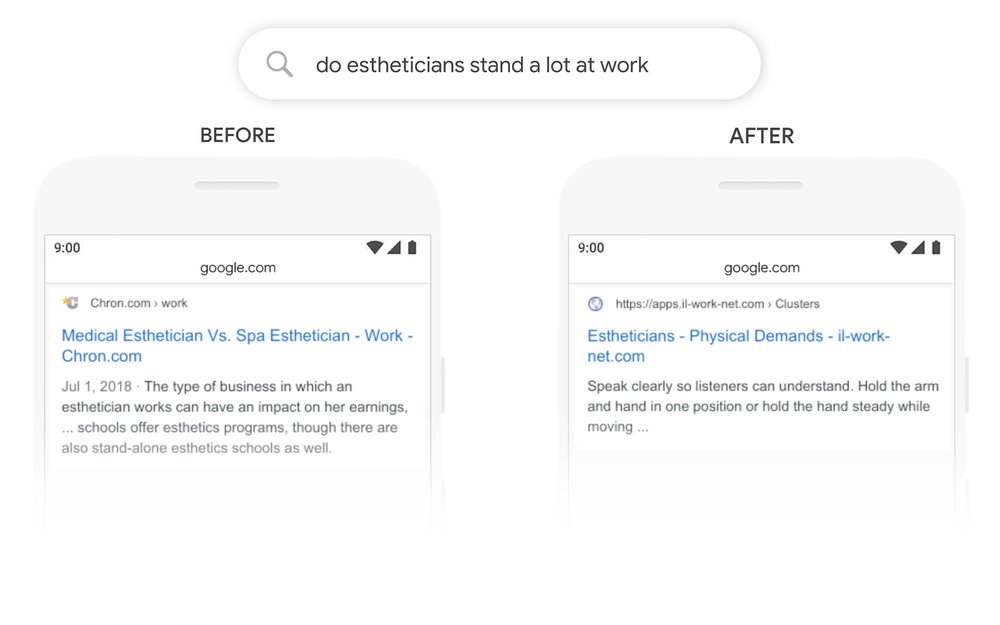Google just released a new algorithm update called “BERT” – which stands for “Bidirectional Encoder Representations from Transformers.”
In this update Google is using “transformers” or words before/after another word that will change the overall intent of the phrase. Or as Google put it:
“This breakthrough was the result of Google research on transformers: models that process words in relation to all the other words in a sentence, rather than one-by-one in order. BERT models can therefore consider the full context of a word by looking at the words that come before and after it—particularly useful for understanding the intent behind search queries.” – Google Blog
Here are a couple examples that Google provided with their explanation.
Example 1:

Here’s a search for “2019 brazil traveler to usa need a visa.” The word “to” and its relationship to the other words in the query are particularly important to understanding the meaning. It’s about a Brazilian traveling to the U.S., and not the other way around. Previously, our algorithms wouldn’t understand the importance of this connection, and we returned results about U.S. citizens traveling to Brazil. With BERT, Search is able to grasp this nuance and know that the very common word “to” actually matters a lot here, and we can provide a much more relevant result for this query.
Example 2:

Let’s look at another query: “do estheticians stand a lot at work.” Previously, our systems were taking an approach of matching keywords, matching the term “stand-alone” in the result with the word “stand” in the query. But that isn’t the right use of the word “stand” in context. Our BERT models, on the other hand, understand that “stand” is related to the concept of the physical demands of a job, and displays a more useful response.
What does this mean?
Now I know what you are thinking… What does this mean? How will this change my ranking?
First, you should always be monitoring your ranking to see if there is any change.
Second, this change is going to affect mostly “sentence” or “long-tail” type searches. This should make you happy, as this change should help potential clients who are looking to BUY your services find you.
In a nut shell, if you create long form content that conveys the “intent” that your targeted user should have when visiting your site – you should come out on top.
Please contact us for more info on how it increase your SEO rankings.

